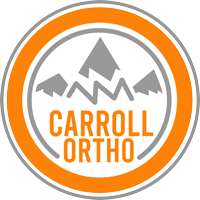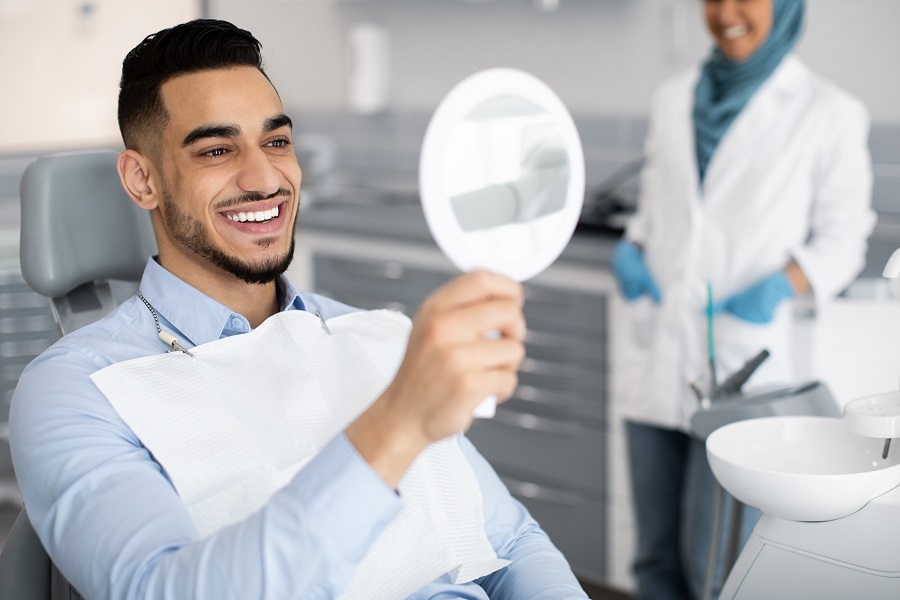What Are the Different Types of Orthodontics Issues?
Orthodontics is a field of dentistry that deals with treating improper bites and straightening teeth. Orthodontic issues include teeth that are crowded, crooked, spaced too far apart, or protruding.
Crowding
One of the most common issues we see is crowding, which occurs when there is not enough space in your mouth for all of your teeth to sit comfortably. This is usually caused by misalignments in your lower or upper jaw.
When a tooth is crowded, it pushes against the next tooth in line and can cause improper chewing of food, chipping of your enamel, increased tooth decay, and even TMJ disorder. The most common treatment for this is braces. Braces move your misaligned teeth back into their proper place, which can lead to less crowding and fewer issues with all of those associated problems.
Crossbite
In a crossbite, the upper jaw and teeth overlap the lower jaw and teeth when biting down. A person with crossbite is usually unaware of their condition until they begin to experience related symptoms. Misaligned jaws can result in painful bites (especially along the molars), speech difficulties, and an increased risk for tooth decay and TMJ disorder. Treatment options include braces, Invisalign®, and orthognathic surgery.
Crossbites can affect both adults and children who have otherwise healthy teeth and bones. The cause is typically genetic but can be influenced by environmental factors or poor oral habits like thumb sucking. Patients with this condition often develop an overbite, which can cause more problems over time if not corrected. This is why it’s important to see your orthodontist as soon as possible if you think you or a family member has a crossbite.
Overbite
An overbite is a term used to describe the protrusion of the upper teeth over the lower front teeth. This is a very common orthodontic problem, and it is usually best treated using traditional braces or Invisalign aligners. In severe cases, however, the patient might need oral surgery to reposition the teeth and correct the bite.
Some of the key symptoms of overbites include jaw pain, difficulty chewing food, and speech difficulties. In some cases, an overbite can also cause facial asymmetry, which can affect a person’s self-esteem and confidence. If you have these symptoms, it’s time to see your dentist for an evaluation! They’ll offer treatment recommendations if necessary.
Overbites are often seen in young children who still have their baby teeth, but adults can also develop this issue later in life. If you think you may have an untreated overbite, it’s important to visit your orthodontist as soon as possible. They’ll be able to diagnose the issue and offer the appropriate treatment plan.
Underbite
An underbite is a type of bite issue in which the patient’s lower jaw is too far forward, which pushes the teeth to the front of the jaw. This can cause issues with biting and talking. Underbites can also cause TMJ disorder and other problems. Braces can be used to correct an underbite by gradually repositioning the jaw. This can be hereditary or occur when injuries alter the way a person’s bones develop.
For many patients, braces will be effective in correcting an underbite. The dentist will slowly reposition a patient’s jaw so that the upper and lower teeth are lined up properly. This process can take anywhere from nine months to two years to complete, but the results can be dramatic. Once the brackets are removed, a patient will be able to smile confidently and eat whatever foods they want.
Open Bite
An open bite occurs when the teeth don’t meet properly when the mouth is closed. This can cause a number of problems, including speech impediments, improper jaw alignment, and excessive wear on the teeth. A patient who is suffering from an open bite should see an orthodontist as soon as possible to discuss treatment options.
Remember, it is always better to see a professional than to deal with orthodontic issues on your own. It can lead to more serious problems down the road, such as facial asymmetry, gum disease, tooth decay, tooth loss, and many others. Get in touch with Carroll Orthodontics at 1116 W Main St, Hamilton, MT 59840, or 3920 US Hwy 93, Stevensville, MT 59870, or call (406) 363-2200 to learn more.
Location
- MON - THU8:00 am - 5:00 pm
- FRIBy appointments only
- SAT - SUNClosed
- MON - THU8:00 am - 5:00 pm
- FRIBy appointments only
- SAT - SUNClosed






